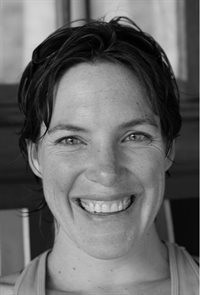 In this post, The Marshall Institute’s Senior Lecturer in Practice Kerryn Krige highlights five organisations featured in the Big Issue’s Top 100 Changemakers list as examples of the importance of solidarity in creating social change.
In this post, The Marshall Institute’s Senior Lecturer in Practice Kerryn Krige highlights five organisations featured in the Big Issue’s Top 100 Changemakers list as examples of the importance of solidarity in creating social change.
It’s a rainy Tuesday but its Big Issue day, and the headline this week is their top 100 Changemakers list, compiled from nominations made by the Big Issue community. It is a thoughtful and insightful collection of social enterprises, community organisations and organisers, campaigners, and inventors.
Summarised across the magazine’s pages, are stories of recycling initiatives, art and media sessions, campaigns, food and clothing banks, and social justice initiatives. These are the people who bring people together, highlighting the ever-evolving ways of what humanity means: from music jam sessions on the top of Herne Hill, to the quiet of green spaces for spinal rehabilitation.
It is a listing of compassion and community, that captures the creativity of social change, and the spirit that underpins action.
There are no favourites, but as I was reading through, the principles of solidarity emerged as central to the work of some organisation. I am mindful that we valorise the acts of an individual, putting them on a heroic pedestal at times forgetting that social change work is always collective. In doing so we tell the single story, rather than seeing the complexity of values and goals that collective action represents.
So amongst the social enterprises, the community interest companies, the non-profits and charities, here are some of the community organisations that have operationalised that collective spirit, either in their ownership models, their approach or intention. It’s a list to keep growing, so please keep adding.
Shadwell Fire Survivors, is a community group that formed after a fire killed Mizanur Rahman in early 2023, when an electric bike caught alight. The fire exposed severe overcrowding in the small, two bedroom apartment, with 21 people living in bunk beds. Facing homelessness, the Shadwell community in Tower Hamlets, London, banded together to support the tenants, whilst lobbying for housing system reform, and the prosecution of the flats’ landlords.
The Courtyard Pantry Enterprise epitomises the togetherness of a community pantry, which, with a £1 membership model, brings people together irrespective of circumstances. Membership of the Pantry creates a community and opens up opportunities for fair work and volunteering together with coffeeshop-conversations and the connectedness that comes with food. The CPE is expanding its model across Glasgow, developing pantry hubs, that shows how to create pockets of community-owned, community led action.
Charity Supermarket: “We have created a business model where people are collaborating not competing” says the Charity Supermarkets founding team Maria Chenoweth and Wayne Hemingway. With pop-up stores and a bricks and mortar enterprise, the under-one-roof supermarket brings charities together at the level of the market. In doing so, the collaboration affirms the values of ethical purchasing, allowing consumers to easily spend their pounds well, and for good.
An organisation of volunteers, No One Dies Alone, ensures that there is someone there to sit with people in their final hours. Based in Inverclyde, Scotland, volunteers are drawn from their local community to provide support to people and their families navigating death. Their work brings solidarity back into end-of-life-care, helping address isolation whilst providing compassion and respite to families.
Be Caring is a care service provider, with an established employee ownership model. The organisation describes itself as a ‘family’, where each employee has an equal share in the company, with governance systems reflecting this. The approach forces a focus on values and mission over profits, and a people-first approach.
These examples highlight how varied solidarity is as a concept, and how valuable it is, when woven into the fabric of the work that is being done. Collaboration can happen as an immediate response to injustice, or as a carefully considered approach. It is seen in governance and organisational structures, and in intention, resulting in communities of interest, of practice and of compassion. It can be hard to see, as we look for individual champions through which to understand (and simplify) the complexity of social change. It is hard work: solidarity approaches bring divergent belief and values systems, approaches, goals and intentions together. It can be messy. But in navigating these contradictions, solidarity oriented organisations are more likely to sustain their social progress, and the values of inclusivity.
Image: Creative Commons



